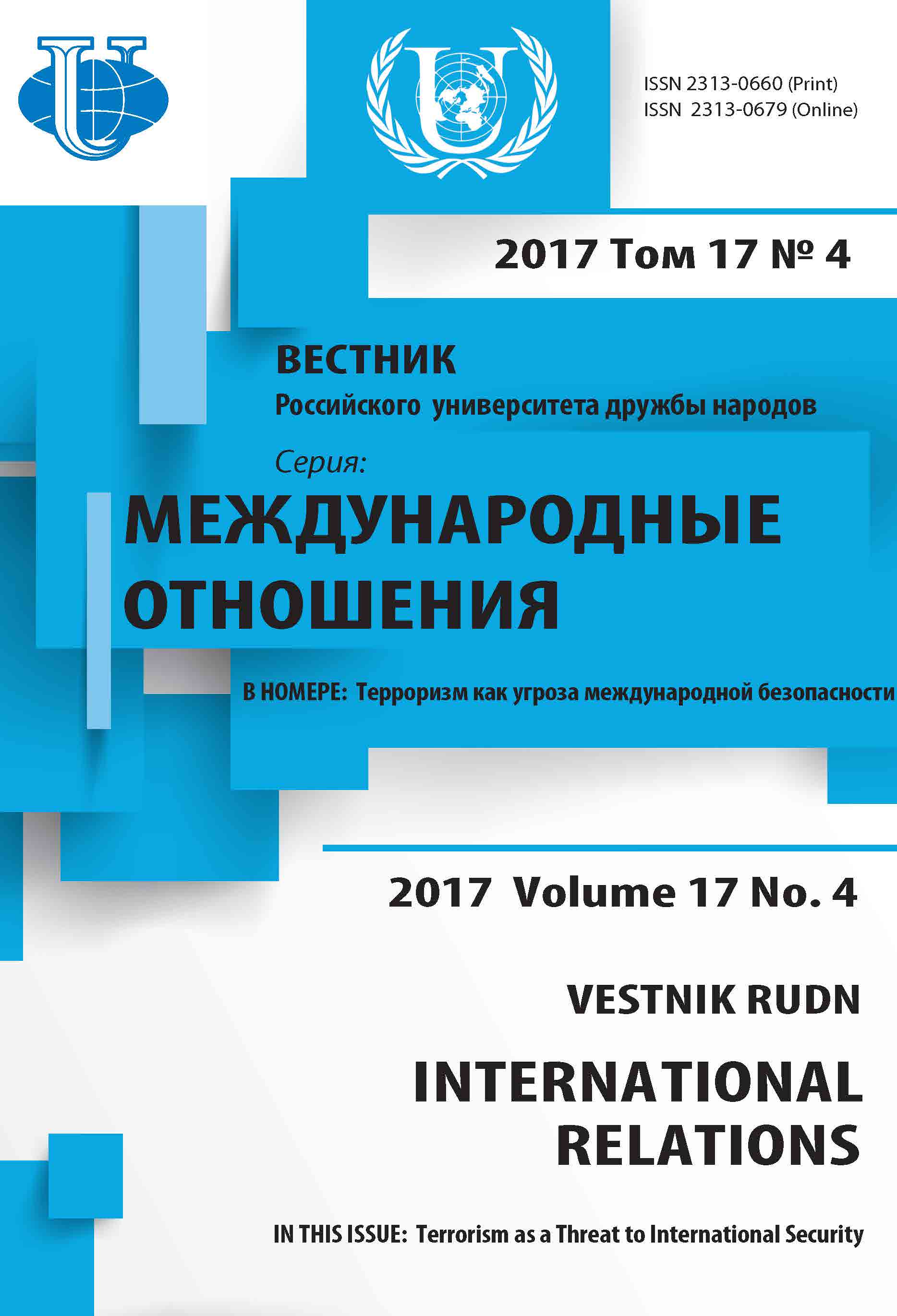ОСОБЕННОСТИ БОРЬБЫ С ТЕРРОРИЗМОМ В ТУРЕЦКОЙ РЕСПУБЛИКЕ НА СОВРЕМЕННОМ ЭТАПЕ
- Авторы: Аватков ВА1
-
Учреждения:
- Московский государственный институт международных отношений (Университет) Министерства иностранных дел Российской Федерации
- Выпуск: Том 17, № 4 (2017): Терроризм как угроза международной безопасности
- Страницы: 669-683
- Раздел: ТЕМАТИЧЕСКОЕ ДОСЬЕ
- URL: https://journals.rudn.ru/international-relations/article/view/17527
- DOI: https://doi.org/10.22363/2313-0660-2017-17-4-669-683
- ID: 17527
Цитировать
Полный текст
Аннотация
Предметом данного исследования выступает противодействие терроризму в современной Турции. Подробно рассматриваются природа и характер подрывной деятельности боевых групп на территории Турции, внешние и внутренние факторы, оказывающие воздействие на контртерро-ристическую борьбу в различных регионах Турецкой Республики. В данной работе автор также затрагивает проблему трансформации национальной протестной контркультуры в контексте политического курса Партии справедливости и развития (ПСР). Целью данного исследования является анализ механизмов и мер, используемых структурами турецкого государства, напрямую или косвенно задействованными в борьбе против террористиче-ской угрозы. Достижению заявленной цели исследования и успешному разрешению поставленных задач способствовало использование институционального и системного подходов. В качестве методов исследования применялись общенаучные и прикладные политологические принципы, включая контент-анализ документов. Особое внимание в статье уделено анализу спектра мер и механизмов, используемых турецкими властями для борьбы с террористическим и экстремистским элементом. Особый интерес представляет структура профильных правоохранительных ведомств, ответственных за реализацию государственных задач по данному направлению, и классификация функциональных обязанностей данных ведомств. Кроме того, в фокусе исследования находится проблематика использования мобилизации турецкого населения на фоне борьбы режима Р.Т. Эрдогана с террористической угрозой для достижения узконаправленных интересов нынешнего турецкого руководства, которые не всегда можно назвать полностью тождественными государственным. Например, тезис о «разделенной нации» - убеждение общественности в том, что террористическая угроза в Турции является исключительно следствием существования курдской проблемы - нередко использовался правящим режимом в качестве механизма воздействия на электорат в предвыборных кампаниях.
Ключевые слова
Об авторах
В А Аватков
Московский государственный институт международных отношений (Университет) Министерства иностранных дел Российской Федерации
Автор, ответственный за переписку.
Email: v.avatkov@gmail.com
Аватков Владимир Алексеевич - канд. полит. наук, преподаватель военной кафедры при Московском государственном институте международных отношений (Университете) Министерства иностранных дел Российской Федерации, Москва, Россия; доцент кафедры международных отношений Дипломатической академии Министерства иностранных дел Российской Федерации, Москва, Россия
Список литературы
- Аватков В.А. 25 лет Идеологемы внешней политики России поиска // Свободная мысль. 2016а. № 5 (1659). С. 27-38.
- Аватков В.А. Кризис турецкой идентичности // Политика и общество. 2017. № 4. С. 96-103. doi: 10.7256/2454-0684.2017.4.19718.
- Аватков В.А. Курдская проблема на турецком поле // Вестник МГИМО Университета. 2012. № 2. С. 128-133.
- Аватков В.А. Неоосманизм. Базовая идеологема и геостратегия Турции // Свободная мысль. 2014. № 3.
- Аватков В.А. О нации, идентичности и логиках современной России: основные сложности и решения // Национальная безопасность. 2016б. № 6.
- Аватков В.А., Иванова Н.А. Коммуникативная интеграция в СНГ // Международные процессы. 2012. Т. 10. № 29. С. 165-168.
- Аватков В., Томилова Ю. Новый облик турецкой армии в начале XXI в. РСМД. 2013. Режим доступа: http://russiancouncil.ru/inner/?id_4=1735#top (дата обращения: 28.07.2017).
- Вопросы безопасности, интеграции и евразийства / Под ред. В.А. Аваткова, А.Ш. Бадранова, М.В. Кочкина. М.: Международные отношения, 2015.
- Дружиловский С.Б., Аватков В.А. Внешнеполитические идеологемы Турции // Обозреватель (Observer). 2013. № 6 (281).
- Социальный протест на современном Востоке / Под ред. Д.В. Стрельцова. М.: Аспект Пресс, 2016.
- Территориальный вопрос в афро-азиатском мире / Под ред. Д.В. Стрельцова. М.: Аспект-пресс, 2013.
- Alexander Y., Brenner E.H. & Krause S.T. Turkey: Terrorism, Civil Rights, and the European Union. Taylor & Francis, 2008.
- Balci A. The PKK-Kurdistan Workers’ Party’s Regional Politics. Palgrave Macmillan, 2017.
- Cline L.E. From Ocalan to Al Qaida: The continuing terrorist threat in Turkey. Studies in Conflict & Terrorism. 2004. N 27.
- Ergil D. Suicide Terrorism in Turkey. Civil Wars 3. 2000. N 1.
Дополнительные файлы










